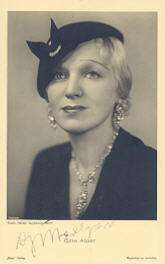
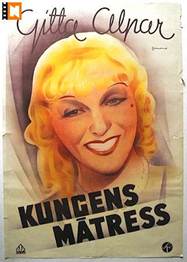
GITTA ALPAR `Eine Koloratursaengerin von reinstem Karat` (photos courtesy Charles Mintzer collection)


Gitta Kalisch was born in Budapest in 1903 as the daughter of a Budapest cantor and a non-Jewish mother. Her first stage appearances were in her home town both in opera and operetta. In the mid-twenties she focussed on an operatic career in Germany with periods at the Munich and Berlin opera houses. She also appeared as a guest artist at Covent Garden in 1929 as Sophie in Der Rosenkavalier (replacing Elisabeth Schumann) yet none of these interpretations would bring her the immense popularity she drew in her operetta roles.
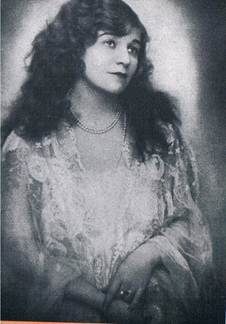
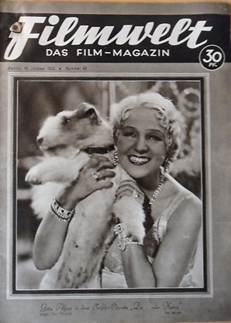 (Alpar as Violetta at the Berlin Staatsoper in 1928 and film magazine cover)
(Alpar as Violetta at the Berlin Staatsoper in 1928 and film magazine cover)
From 1930 onwards it was in this genre that her career blossomed. It all started with creating the role of Victoria in Pal Abraham’s Victoria which led to her being cast opposite Richard Tauber in the premiere of Lehar’s Schoen ist die Welt at the Berlin Metropoltheater in 1930. Several other roles followed. In 1932 she married actor Gustav Frohlich (1902-1987) with whom she had a daughter. Yet Froelich preferred the new Nazi regime over his wife and deserted her shortly afterwards and thus in 1933 Alpar left for Vienna and Budapest singing in operetta and appearing in several more films. The late thirties saw her appearing in Scandinavia and she also undertook a South American tour.
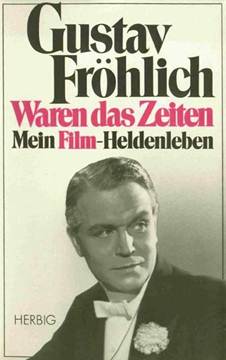
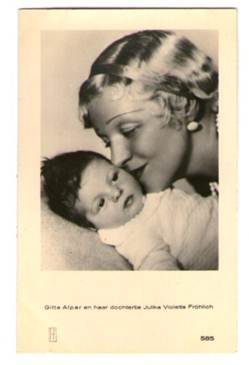 (Alpar with her daughter Julika Violetta - then Frohlich- Alpar)
(Alpar with her daughter Julika Violetta - then Frohlich- Alpar)
After a stop in London for an appearance in Brodzky’s Coronation revue Home and Beauty alongside Binnie Hale and Nelson Keyes she definitely settled for the US. A few more film and radio appearances followed but her career would never be the same again. An audition for the Met resulted in nothing as she failed to impress. Possible explanation for this remarkable feat was that her singing style was so alien –or perhaps even too “camp”- to an American audience unfamiliar with operetta schmalz and this in an era where local schools of singing were still so distinct unlike today where singers from whatever nationality start to sound more and more the same. This must have come hard to her having been such a mega star in pre-war Europe and realizing that singers such as Bidu Sayao or Jarmila Novotna with voices not superior to hers succeeded into becoming real Met legends.
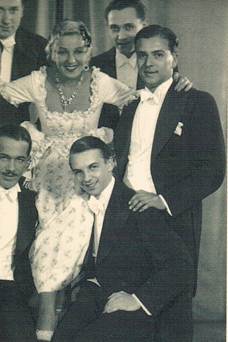
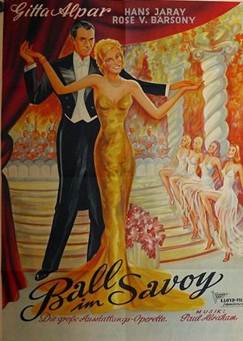 (rare photo with the Comedian Harmonists and movie poster)
(rare photo with the Comedian Harmonists and movie poster)
She re-married (1940-1953) and lived in Palm Springs where she died in 1991. Both her brothers a pianist and a violinist were concentration camp survivors. Gitta Alpar recorded for Homocord, Parlophon, Odeon and Columbia. The voice of this remarkable singer has a warm though bright timbre and it does have the virtue of a highly individual flavour and style. The voice with an exotic touch to it, is always easily produced, and a pleasure to hear. Herman Klein in The Gramophone was right in stating `that Alpar in her unique operetta-recordings possesses the ‘vis comica’ in a supreme degree, and yet in her serious moments she can draw tears. Her control of vocal inflections is quite amazing…The open tone in the lower register and the utterance of the parlando bits provide both humour and contrast : they surprise you and make you smile…Everything is sung with tremendous en train.`
The once enterprising LP label Rococo re-issued several of her opera and operetta recordings on two separate LP issues and Preiser re-issued several of her opera recordings on CD. Regrettably an official re-issue of her ‘lighter’ repertoire is still a dream yet it is here that several of her unequalled jewels are hidden. Take her remarkable version of Carlos Gardel’s ‘El dia que me quieras’ for instance :
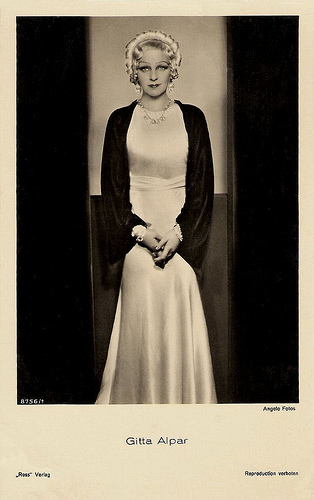
Gardel composed the song about 1934-35 and Alpar’s version is the only version I know of sung by a woman yet all her far more recent male and often Latin competitors get a good lesson from this ‘antique’ Hungarian female in how to interpret this tango. Marcelo Alvarez’s version -though it has its merits- pales in comparison. Carreras croons badly, Luis Miguel and Julio Iglesias croon even worse. Domingo is by far the best of them all but has a far too noisy accompaniment. I haven’t heard Sinatra’s version.
Alpar who mostly sang in German, sings here in Spanish. Just listen with how much slancio and feeling she starts the first lines of the song, admire her recitar parlando insert (the males avoid this, they also opt for another tempo) and her sense of the line the song. A desert island disc! The record must have sold pretty well as it was issued on different labels. And there are more. Yet an understanding of German is helpful in getting her genius as her enunciation is always so distinct and an integral part of her art.
Nevertheless also her operatic recordings have their value, in particular her rendition of the Dinorah aria dated around 1931. Alpar lacks the sheer technical display in this piece of Gruberova, Sills, Jo, Cook, Streich, Dessay or Kurz yet she brings so much feeling to the piece that she easily supersedes her competitors in bringing this bravura piece to life.
In the early sixties Alpar was still legendary enough in Germany for Rita Streich to record an album in her honour. Was she a great singer? One must rightly feel so when, after a whole afternoon of listening to her recordings, the point of saturation was all but reached.
RvdB
Selective repertory listing
Abraham:
Ball im Savoy (Madeleine)
Victoria und ihr Husar (Victoria)
Brodszky : Die verliebte Konigin
Delibes: Lakme (title role)
Kalman: Das Veilchen von Montmartre
Lehar:
Schoen ist die Welt
Die lustige Witwe
Leoncavallo: Pagliacci (Nedda)
Marschner: Der Vampyr (Janthe)
Millocker:
Der Bettelstudent (Laura)
Grafin Dubarry (title role)
Mozart:
Die Entfuehrung aus dem Serail (Konstanze) 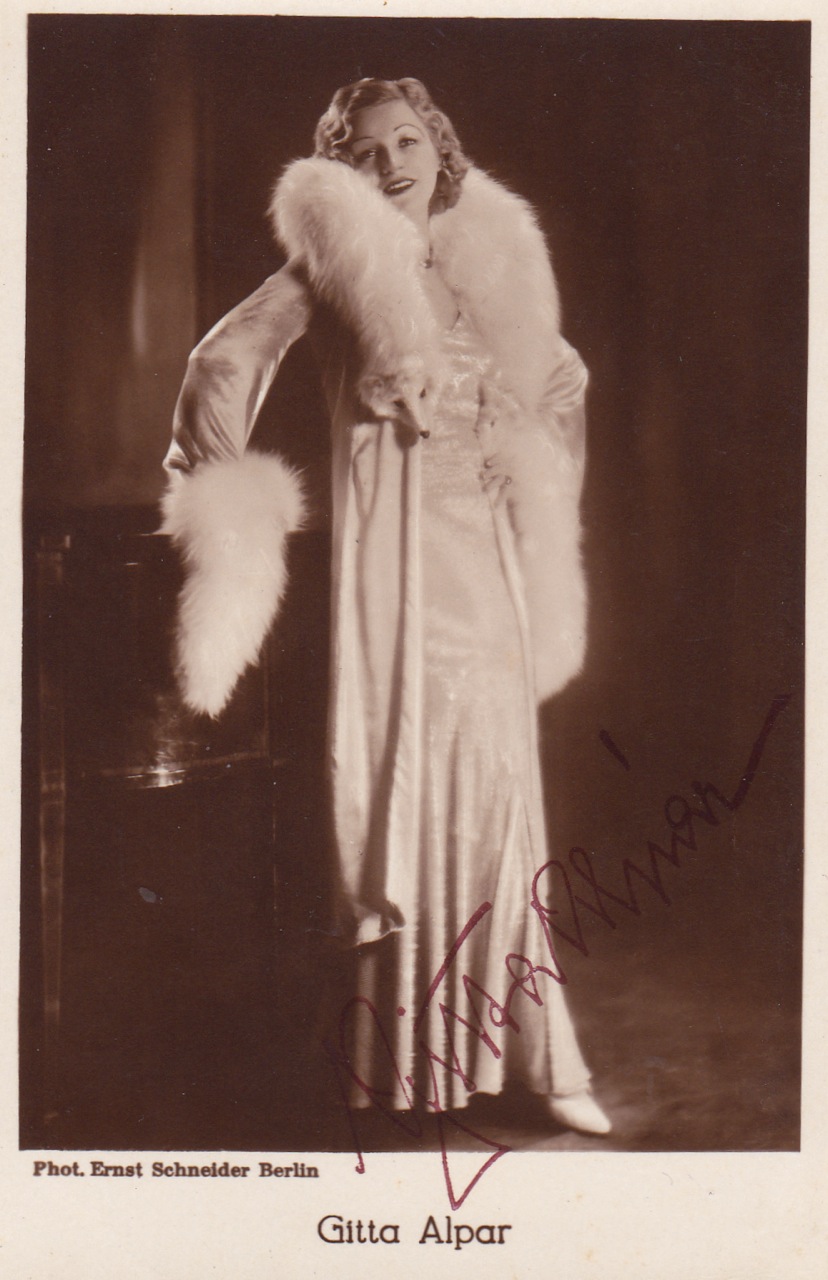
Die Zauberfloete (Queen of the Night)
Le Nozze di Figaro (Cherubino)
Offenbach: Les Contes d’Hoffman (the three roles!)
Rossini: Il Barbiere di Siviglia (Rosina)
Steffan: Katherina
Strauss, Richard:
Der Rosenkavalier (Sophie)
Die Aegyptische Helena (Aithra)
Verdi:
La Traviata (title role)
Rigoletto (Gilda)
FILMOGRAPHY

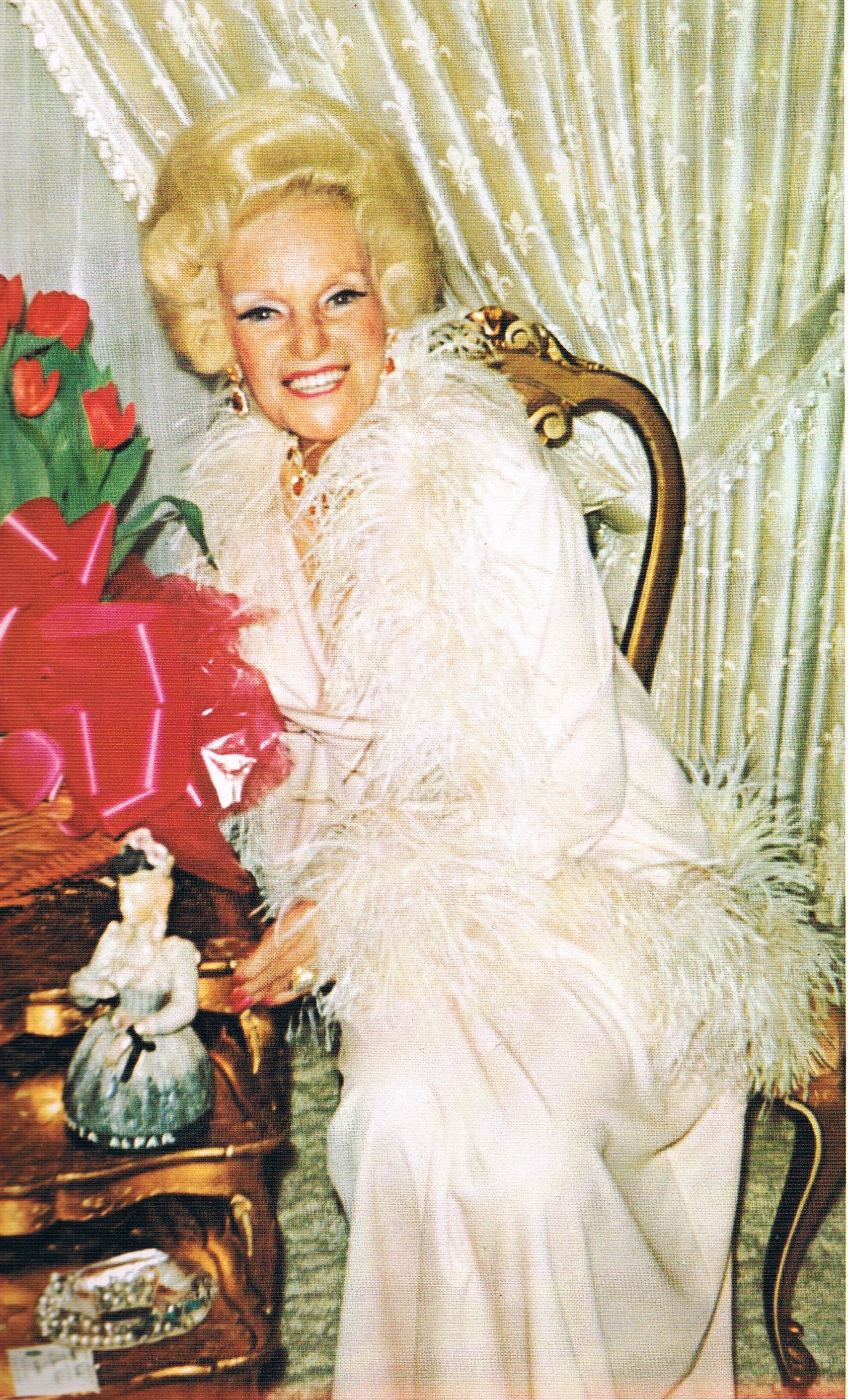
(Alpar in the early thirties and late seventies)